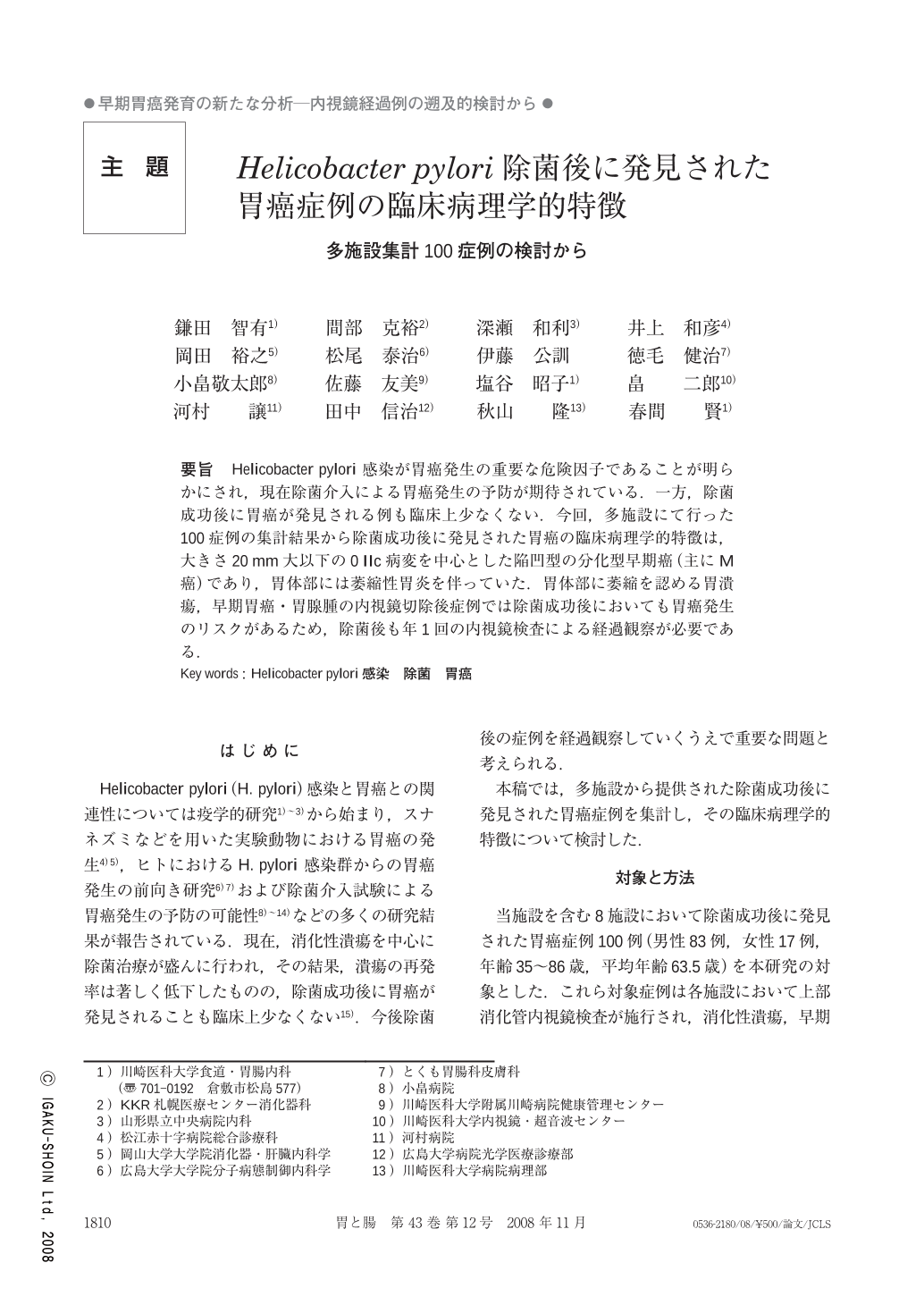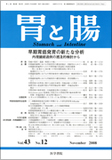Japanese
English
- 有料閲覧
- Abstract 文献概要
- 1ページ目 Look Inside
- 参考文献 Reference
- サイト内被引用 Cited by
要旨 Helicobacter pylori 感染が胃癌発生の重要な危険因子であることが明らかにされ,現在除菌介入による胃癌発生の予防が期待されている.一方,除菌成功後に胃癌が発見される例も臨床上少なくない.今回,多施設にて行った100症例の集計結果から除菌成功後に発見された胃癌の臨床病理学的特徴は,大きさ20mm大以下の0IIc病変を中心とした陥凹型の分化型早期癌(主にM癌)であり,胃体部には萎縮性胃炎を伴っていた.胃体部に萎縮を認める胃潰瘍,早期胃癌・胃腺腫の内視鏡切除後症例では除菌成功後においても胃癌発生のリスクがあるため,除菌後も年1回の内視鏡検査による経過観察が必要である.
Eradication of H. pylori is expected to prevent the development of gastric cancer. However, gastric cancer is sometimes discovered after successful eradication of H. pylori. We investigated the clinicopathlogical features of 100 gastric cancer patients detected after successful H. pylori eradication in a multi-center study. Gastric cancers discovered after H. pylori eradication were characterized as early non-cardiac cancers of the intestinal type with ulceration and corporal atrophic gastritis. Our study revealed that careful follow-up endoscopic examination for possible gastric cancer is necessary even after successful H. pylori eradication in patients with gastric ulcer or early gastric cancer after endoscopic resection, because such patients may have baseline mucosal atrophy in the corpus

Copyright © 2008, Igaku-Shoin Ltd. All rights reserved.


